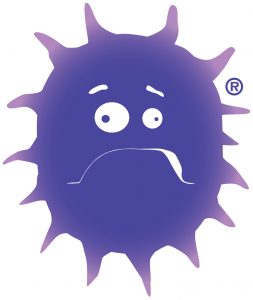With the flu season upon us once again, Blackpool Teaching Hospitals is encouraging its staff to have vaccinations.
The vaccinations, which are available free of charge to all front line employees of the NHS, enable staff to not only protect themselves from this year’s strain of the flu virus, but also their families, colleagues and patients.
Below are some myth-busting flu facts which address many of the most common queries about flu jabs
Flu kills
For the majority of people who catch it, flu is unpleasant but not life-threatening. Yet for others, it can lead to chest infections, severe complications and even death. Globally, seasonal flu accounts for around three to five million causes of severe illness annually and between 250,000 and 500,000 deaths.
Flu is a highly transmissible infection. The patient population found in hospital is much more vulnerable to the severe effects of influenza. Healthcare workers may transmit the illness to patients even if they are mildly or sub-clinically infected.
There are reports of flu outbreaks within hospitals and other care settings where transmission from healthcare workers to patients is likely to have facilitated spread of the disease. In one outbreak, 118 staff and 49 patients were infected. A second resulted in six infections among neonates and one death.
The flu vaccine is safe
The risk of having a serious (anaphylactic) reaction to the seasonal flu vaccine is less than one in a million – much lower than the risk of getting seriously ill from actually catching flu. If you have had a serious allergic reaction (anaphylaxis) to a flu vaccine before, please talk to a clinician before getting vaccinated. If you have a serious allergic reaction (anaphylaxis) to hens’ eggs, you should enquire about vaccines with a very low egg content and be vaccinated under clinical supervision.
The vaccine is one of the safest in the world
Seasonal flu vaccine is given to millions of people in the UK each year. The specific strains of flu that are included may change from one year to the next, but vaccines are still thoroughly tested and are safe.
The flu jab can’t give you the flu
It’s impossible to get flu from having the flu jab because the vaccine doesn’t contain live viruses. A very small number of people experience side effects such as aching muscles, but this is simply their immune system responding to the vaccine.
The side effects of the vaccination are manageable
For the most part, seasonal flu vaccine side effects are mild or often non-existent. The most common side effect is soreness around the site of the injection and, occasionally, aching muscles. These symptoms are a lot less debilitating than having flu.
Health professionals need to protect patients
Vaccination isn’t just about keeping yourself safe, it’s about protecting your family, your colleagues and your patients. You can carry and pass the virus on to others without having any symptoms yourself so, even if you consider yourself healthy, you may be risking the lives of others.
You need the vaccine every year
If you were vaccinated last year, you helped to fight the flu and took an extra step towards excellent patient care. Please do the same again this year as you won’t be protected against the new strains of circulating flu.
Vaccination works
The World Health Organization cites clean water and vaccination as the two interventions that have the greatest impact on public health – vaccination works. Trivalent seasonal influenza vaccines generally give 60–80 per cent protection against infection.
Pregnant women can be vaccinated
Pregnant women can have the flu vaccination at any stage of their pregnancy. Having the vaccination when pregnant is beneficial and helps protect the baby from flu in the first few months of life.
Healthy diets won’t prevent flu
Your diet could help to boost your immune system, but eating well will not protect you from flu. The best way to protect yourself, your family and your patients against flu is by getting the flu jab.
Hand washing is very important, but it won’t stop flu
It’s vital to follow universal infection prevention procedures and wash your hands regularly. Although, once flu has been passed on to your family, colleagues or your patients, clean hands won’t keep flu at bay. Book your flu jab as soon as possible and encourage those around you to do the same.
Anyone can get the flu
One of the most common reasons staff give for not getting vaccinated is: ‘I’ve never had flu before’. There’s no such thing as natural immunity to influenza, with new strains circulating this year, it’s best to get vaccinated against flu.
Visit www.nhsemployers.com/flu or get involved with the flu fighter conversation on Twitter @NHSFlufighter or #flufighter
Members of the public should contact their GP surgery to see if they are eligible for a flu jab.


